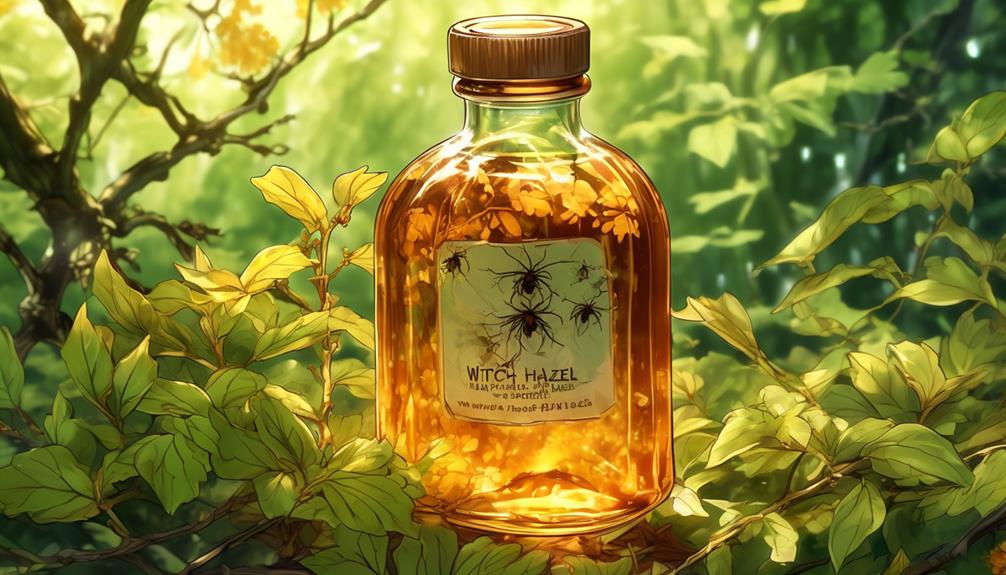Did you know that there are effective home remedies that can bid farewell to those pesky mosquito bites? It’s true! You might be surprised to learn that you don’t need to rely solely on over-the-counter creams or sprays to find relief.
In fact, there are a multitude of natural remedies that can help alleviate the discomfort and itchiness caused by mosquito bites. From soothing aloe vera to the refreshing scent of peppermint oil, these remedies offer a gentler and more cost-effective solution.
But what are the secrets behind these remedies?
Stay tuned to discover the key ingredients and techniques that can help you say goodbye to mosquito bites for good.
Bug Bite Relief…
- Aloe vera gel and tea tree oil are natural remedies that can provide relief from mosquito bites.
- Calamine lotion and witch hazel are effective options for reducing inflammation and soothing itching caused by mosquito bites.
- Essential oils like lavender, eucalyptus, and peppermint can be used to alleviate itching and inflammation.
- Baking soda can be used to create a paste that reduces swelling and relieves itching from mosquito bites.
Aloe Vera for Mosquito Bites

Aloe vera gel provides instant relief and reduces pain and swelling when applied to mosquito bites.
Its soothing properties help alleviate itching and promote healing of the affected area. By applying a small amount of aloe vera gel directly to the mosquito bite, you can experience a cooling effect and find relief from discomfort.
Aloe vera gel is one of the most effective natural remedies for mosquito bites, and it can be easily incorporated into your daily routine.
Not only does it reduce swelling and provide relief from itching, but it also helps prevent infection. Unlike chemical-laden products, aloe vera gel is a natural and gentle alternative that can be used by anyone, including those with sensitive skin.
Additionally, aloe vera gel can be combined with other essential oils to enhance its properties and create a more effective solution for preventing mosquito bites. By harnessing the power of aloe vera gel, you can find immediate relief and prevent future discomfort caused by mosquito bites.
Tea Tree Oil Remedy
If you’re looking for another natural remedy to soothe mosquito bites, tea tree oil may be just what you need. Tea tree oil is an oil derived from the leaves of the Melaleuca alternifolia tree and is known for its numerous benefits.
When it comes to mosquito bites, tea tree oil can help reduce inflammation and provide relief from the discomfort.
This is because tea tree oil is a powerful natural antiseptic that helps prevent infection. It also has soothing properties that can alleviate the itching and swelling caused by mosquito bites.
To use tea tree oil as a remedy, you can mix a few drops of the oil with a carrier oil like coconut oil or olive oil, and then apply it to the affected area. Alternatively, you can add a few drops of tea tree oil to a bowl of water and use a cotton ball to apply the solution to your skin.
Remember to always dilute tea tree oil before applying it to your skin to avoid any potential irritation. Overall, tea tree oil can be an effective and natural option to alleviate mosquito bite symptoms and promote healing.
‘Did you know? Tea tree oil has been used for centuries by Indigenous Australians for its medicinal properties, including its ability to treat skin ailments like insect bites.’
Calamine Lotion for Relief

Calamine lotion is a tried and true remedy for soothing mosquito bites and providing relief from itching and inflammation. It’s a natural solution that can help reduce the discomfort of mosquito bites without the need for harsh chemicals.
Here are four reasons why calamine lotion is an effective choice for mosquito bite relief:
- Creates a protective barrier: When applied to the skin, calamine lotion creates a protective barrier that helps prevent further irritation from mosquito bites. This barrier shields the affected area from further scratching and can aid in reducing inflammation.
- Easy to use at home: Calamine lotion is widely available at local stores and is convenient for use at home. Simply apply a thin layer of the lotion directly to the mosquito bite, and you’ll experience relief from itching and discomfort.
- Soothes itching and reduces inflammation: The active ingredient in calamine lotion, zinc oxide, helps reduce inflammation and soothes itching caused by mosquito bites. It provides a cooling sensation and alleviates the urge to scratch, promoting faster healing.
- Gentle on the skin: Unlike some commercial products that may contain harsh chemicals, calamine lotion is gentle on the skin. It’s a safe and effective option for individuals of all ages, including children.
Witch Hazel as a Natural Astringent

After exploring the benefits of calamine lotion for mosquito bite relief, let’s now turn our attention to another natural remedy: witch hazel as a natural astringent.
Witch hazel is a plant-derived liquid that has been used for centuries to reduce itching and alleviate itchiness caused by mosquito bites. It contains tannins, which are natural compounds that have anti-inflammatory and antibacterial properties.
To use witch hazel for mosquito bites, simply soak a cotton ball or pad in the liquid and apply it directly to the affected area. The tannins in witch hazel work to reduce inflammation and soothe the skin, providing relief from itching.
Additionally, its antibacterial properties can help prevent infection if the bite is scratched and broken.
Using witch hazel as a natural astringent can also help reduce your exposure to harsh chemicals found in conventional anti-itch creams and lotions. By opting for a natural remedy like witch hazel, you can effectively relieve itching without introducing potentially harmful ingredients to your skin.
‘Did You Know? Witch hazel extract is also commonly used as a facial toner and can help reduce the appearance of pores and control oil production.’
Essential Oils (Lavender, Eucalyptus, Peppermint) for Bites

Using essential oils such as lavender, eucalyptus, and peppermint can provide effective relief from mosquito bites by reducing itching and inflammation.
Here are some ways you can use these essential oils to soothe your mosquito bites:
- Mix a few drops of lavender, eucalyptus, or peppermint essential oil with a carrier oil like coconut oil or olive oil. Apply the mixture directly to the mosquito bite to reduce itching and promote healing.
- Add a few drops of lavender, eucalyptus, or peppermint essential oil to a warm bath. Soak in the bath for 15-20 minutes to relieve itching and relax your skin.
- Create a homemade mosquito repellent by combining basil leaves with lavender, eucalyptus, or peppermint essential oil. Crush the basil leaves and mix them with a carrier oil. Apply the mixture to your skin before going outdoors to reduce your exposure to mosquitoes.
- Keep mosquitoes away from your home by diffusing lavender, eucalyptus, or peppermint essential oil. Add a few drops to a diffuser or mix with water and spray around your home to create a natural barrier.
Essential oils like lavender, eucalyptus, and peppermint offer a natural and cost-effective way to treat mosquito bites. Give them a try and say goodbye to those pesky itchy bites!
‘Did You Know? Peppermint essential oil has been used for centuries to repel mosquitoes. Its strong scent acts as a deterrent, keeping these pesky insects away from your skin.’
Baking Soda for Quick Relief
To continue finding relief from mosquito bites, another effective home remedy is using baking soda. Baking soda can provide quick relief from the itching and discomfort caused by mosquito bites. It has properties that can help alleviate the itchiness and reduce inflammation.
One way to use baking soda is by creating a paste.
Simply mix baking soda with a little water to form a thick paste and apply it directly to the mosquito bite. Leave the paste on for a few minutes and then rinse it off. The baking soda paste helps to neutralize the pH of the skin, which in turn reduces itching and swelling.
It offers a convenient and cost-effective solution for quick relief from mosquito bites. By using baking soda to treat mosquito bites, you can reduce your chances of scratching the bite and potentially causing further irritation. So the next time you get bitten by a mosquito, reach for the baking soda to provide relief and soothe your skin.
Simple Relief…
These effective home remedies for mosquito bites provide a natural and cost-effective way to find relief. Just like how a soothing touch can calm a troubled mind, these remedies offer comfort and relief to those bothered by mosquito bites.
With their gentle nature and convenience, they’re a great alternative to harsh chemicals. So say goodbye to pesky mosquito bites and embrace these simple yet effective remedies for a more comfortable and enjoyable summer.

